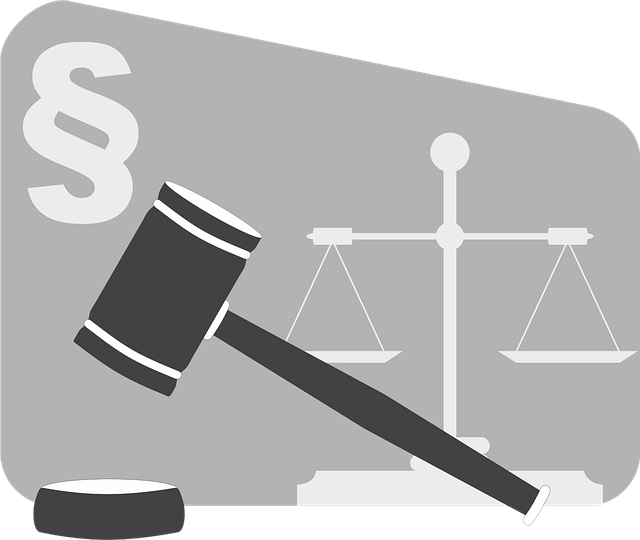Securities class actions empower investors to hold accountable entities responsible for fraudulent or misleading conduct in the securities market. They differ from traditional administrative processes, where regulatory bodies like the SEC impose penalties, and civil proceedings, where individual investors seek damages. Class actions involve a collective of investors with similar claims, proving highly effective in protecting investor rights and ensuring corporate accountability. Understanding the differences between administrative and civil proceedings is crucial: while adminstrative processes focus on systemic issues and deterrence, civil lawsuits aim for monetary damages or injunctive relief for past misconduct, offering broader recovery options but demanding a more active investor role.
Securities class actions are a powerful mechanism for investors to hold companies accountable for fraudulent or negligent conduct. This article delves into the intricacies of these legal battles, focusing on the distinctions between administrative and civil proceedings. We’ll explore how each process operates, their key characteristics, and the strategic considerations investors should understand when facing a class action lawsuit. By understanding these differences, investors can navigate the complex landscape of securities litigation with greater confidence.
- Understanding Securities Class Actions: A Brief Overview
- Definition and Purpose of Administrative Proceedings
- Key Characteristics of Civil Lawsuits
- Comparison: Administrative vs. Civil Proceedings – Legal Process
- Strategic Considerations for Investors in Class Action Suits
Understanding Securities Class Actions: A Brief Overview

Securities Class Actions serve as a powerful tool for investors to hold accountable entities responsible for fraudulent or misleading conduct in the securities market. This legal mechanism allows for collective action, where a group of investors with similar claims join forces to pursue compensation. Understanding the intricacies of these actions is crucial for both investors and businesses alike.
At their core, securities class actions differ from traditional administrative or civil proceedings. Administrative processes often involve regulatory bodies investigating and imposing penalties on behalf of affected investors. In contrast, civil proceedings are private lawsuits initiated by individual or group investors seeking monetary damages. Across the country, an unprecedented track record of successful securities class actions has emerged, demonstrating their effectiveness in protecting investor rights and ensuring corporate accountability.
Definition and Purpose of Administrative Proceedings

Administrative proceedings are a unique legal process designed to address wrongdoings and protect investors within the financial markets. Unlike traditional civil lawsuits, these proceedings are initiated and overseen by regulatory bodies such as the Securities and Exchange Commission (SEC) or state-level securities divisions. The primary purpose is to enforce federal and state securities laws, deter misconduct, and provide remedies for aggrieved investors without necessarily seeking monetary damages. This process offers a more streamlined and efficient approach to addressing large-scale investor fraud or market manipulation, often resulting in significant penalties and reforms.
One key difference between administrative and civil proceedings lies in their focus and scope. While civil lawsuits typically involve private individuals or entities seeking compensation for specific harms, administrative actions are more concerned with systemic issues and the overall health of financial markets. This distinction is crucial as it leads to different procedural rules and remedies. An unprecedented track record shows that successful administrative actions can lead to substantial changes in corporate governance, improved disclosure standards, and enhanced investor protections across the country—all achieved without the need for individual investors to file separate lawsuits, which can be both costly and time-consuming.
Key Characteristics of Civil Lawsuits

Civil lawsuits, a cornerstone of securities law, differ significantly from administrative proceedings in their approach and objectives. While administrative processes often involve regulatory bodies scrutinizing corporate conduct, civil lawsuits are brought by individuals or groups who claim to have suffered financial harm due to securities fraud or misconduct. This fundamental distinction sets the stage for distinct legal strategies and potential outcomes.
In a civil lawsuit, plaintiffs seek compensation for damages incurred, aiming for monetary redress and, in some cases, injunctive relief. The focus is on achieving extraordinary results, holding accountable those responsible for deceptive practices. Unlike administrative actions that may result in fines or penalties, successful civil lawsuits can lead to complete dismissal of all charges against the defendant, offering a more comprehensive form of justice for affected philanthropic and political communities.
Comparison: Administrative vs. Civil Proceedings – Legal Process

When considering securities class actions, understanding the differences between administrative and civil proceedings is crucial. Administrative processes involve regulatory bodies like the Securities and Exchange Commission (SEC), which have the authority to investigate and enforce federal securities laws. These proceedings often result in enforcement actions, such as fines or cease-and-desist orders, without direct compensation for aggrieved investors. The focus here is on avoiding indictment and ensuring compliance with regulations, making it a preventative measure more tailored to corporate clients.
In contrast, civil proceedings are initiated by private parties—typically investors—through lawsuits filed in federal or state courts. Unlike administrative actions, these suits seek monetary damages or injunctive relief for violations of securities laws. The process involves detailed legal arguments, discovery, and potential trials, catering to both corporate and individual clients who have suffered losses due to alleged misconduct. This distinct approach allows for broader recovery options but requires investors to take a more proactive role in the legal process.
Strategic Considerations for Investors in Class Action Suits

When navigating securities class actions, investors must carefully consider their strategic options. A key distinction lies in understanding the differences between administrative and civil proceedings. Administrative processes often involve regulatory bodies like the SEC, focusing on enforcement and remedy. In contrast, civil proceedings are more about individual or class compensation for harmed parties, typically initiated through lawsuits.
Investors should weigh the pros and cons of each track. Civil suits may offer higher potential recoveries but come with uncertainties, including the cost of lengthy jury trials and the risk of split decisions. By contrast, administrative processes might be quicker and less expensive, with a more focused aim on deterrence and restitution for aggrieved white-collar defense victims. Engagement in these proceedings also influences the investor’s standing in related philanthropic and political communities, shaping their future influence beyond immediate financial gains.
Securities class actions are complex legal battles that offer investors a powerful tool to seek justice and compensation for financial losses. By understanding the intricacies of both administrative and civil proceedings, investors can navigate this landscape effectively. While administrative processes provide a faster, more streamlined approach, civil lawsuits offer broader remedies and the potential for significant recoveries. Recognizing the differences between these two tracks is crucial for investors to make informed strategic considerations, ultimately ensuring they receive the best possible outcome in their pursuit of accountability and restitution.






